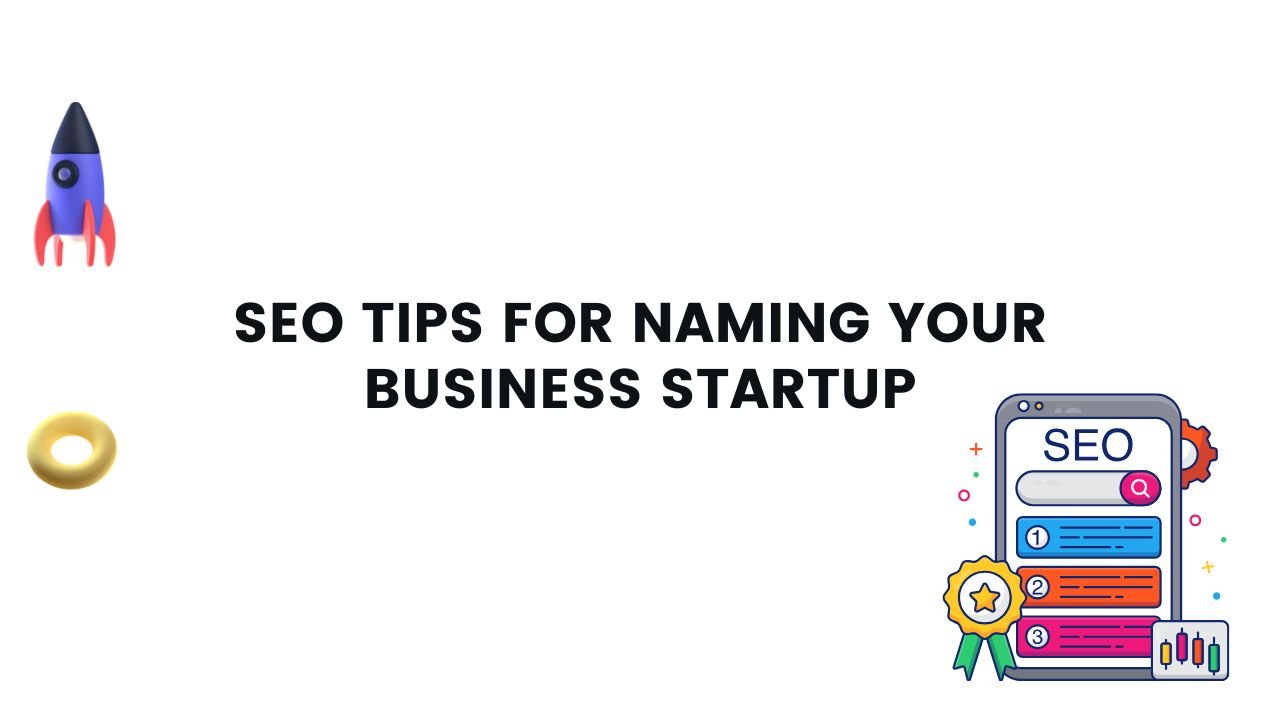

Launching a startup is an exciting venture, and one of the most critical decisions you’ll make is choosing the perfect name for your business. The right name not only reflects your brand identity but also enhances your online visibility. Here are comprehensive SEO tips for naming your business startup that will help you create a strong foundation for success.
When it comes to search engine optimization (SEO), your business name plays a vital role. A well-chosen name can improve search rankings, make your brand memorable, and attract more customers. By incorporating relevant keywords into your business name, you can improve your visibility on search engine result pages (SERPs).
Integrating keywords related to your niche in your business name is a powerful strategy. Keywords help potential customers find your business when searching online. For instance, if your startup offers eco-friendly products, including words like “green,” “eco,” or “sustainable” can enhance visibility.
A concise and easy-to-remember name is essential for brand recall. Long or complicated names can confuse customers and make it harder for them to find you online. Aim for names with 2-3 words or fewer than 15 characters.
Your business name should align with your brand’s values and mission. Think about how the name resonates with your target audience. A strong connection between your name and brand identity improves customer loyalty and recognition.
In today’s digital age, having a strong online presence is non-negotiable. Before finalizing your business name, ensure that a matching .com domain is available. This not only boosts your credibility but also strengthens your SEO efforts.
While keywords are crucial, overloading your business name with too many can harm your SEO efforts. A name like “Best Cheap Affordable Shoes” appears spammy and can deter customers. Focus on natural-sounding names that incorporate one or two relevant keywords.
Use tools like Google Keyword Planner or SEMrush to identify keywords with high search volume and low competition. This will help you pinpoint terms that resonate with your audience and improve your chances of ranking higher.
If your startup targets a specific geographic area, include the location in your name. For example, “Seattle Craft Coffee” instantly tells customers where you’re located and improves local SEO rankings.
A name that’s difficult to spell or pronounce can hurt your brand. Customers may struggle to find your business online, leading to missed opportunities. Test your name’s simplicity with a focus group to ensure it’s easy to use.
Ensure your business name is available across major social media platforms. Consistent branding across your website and social channels strengthens your online presence and improves search visibility.
Research existing trademarks to ensure your chosen name is unique. Legal disputes over trademarks can derail your SEO efforts and damage your reputation. Use tools like USPTO’s trademark database to check availability.
Generic names like “Tech Solutions” or “Home Services” fail to stand out in competitive markets. Opt for a distinctive name that reflects your unique value proposition.
With the majority of web traffic coming from mobile devices, your business name should be easy to type on smaller screens. Avoid using special characters or excessive punctuation that complicates searchability.
Once your business is live, track its performance using tools like Google Analytics. Monitor traffic, bounce rates, and conversions to assess how well your name is performing in search results.
Naming your business startup is a critical step that requires strategic thinking and creativity. By incorporating SEO principles, you can craft a name that not only reflects your brand’s identity but also improves your visibility online. From keyword research to domain availability, each aspect plays a significant role in creating a name that resonates with your audience and drives traffic to your business.
Leave a comment